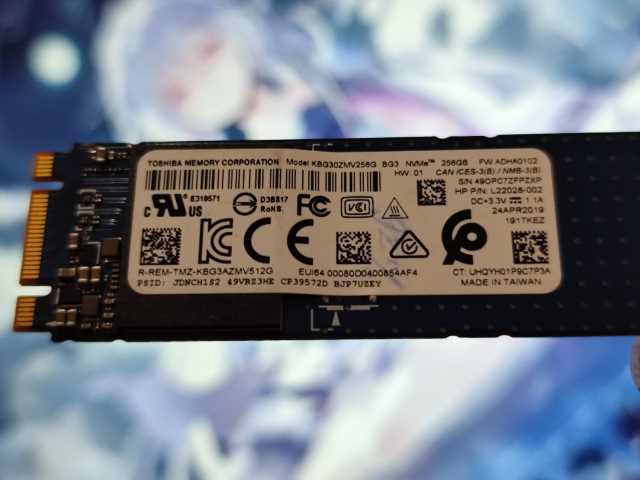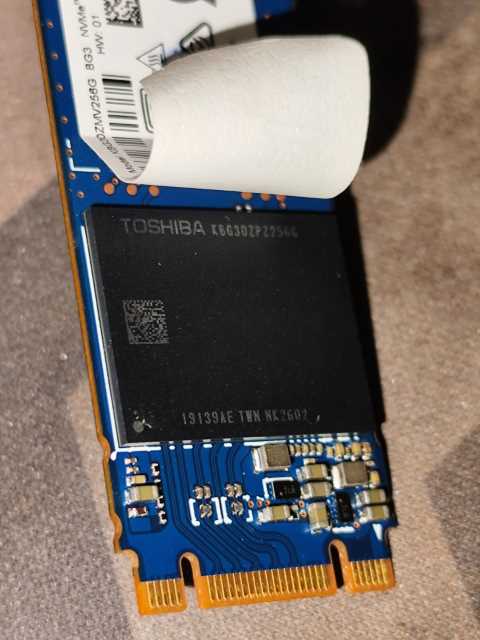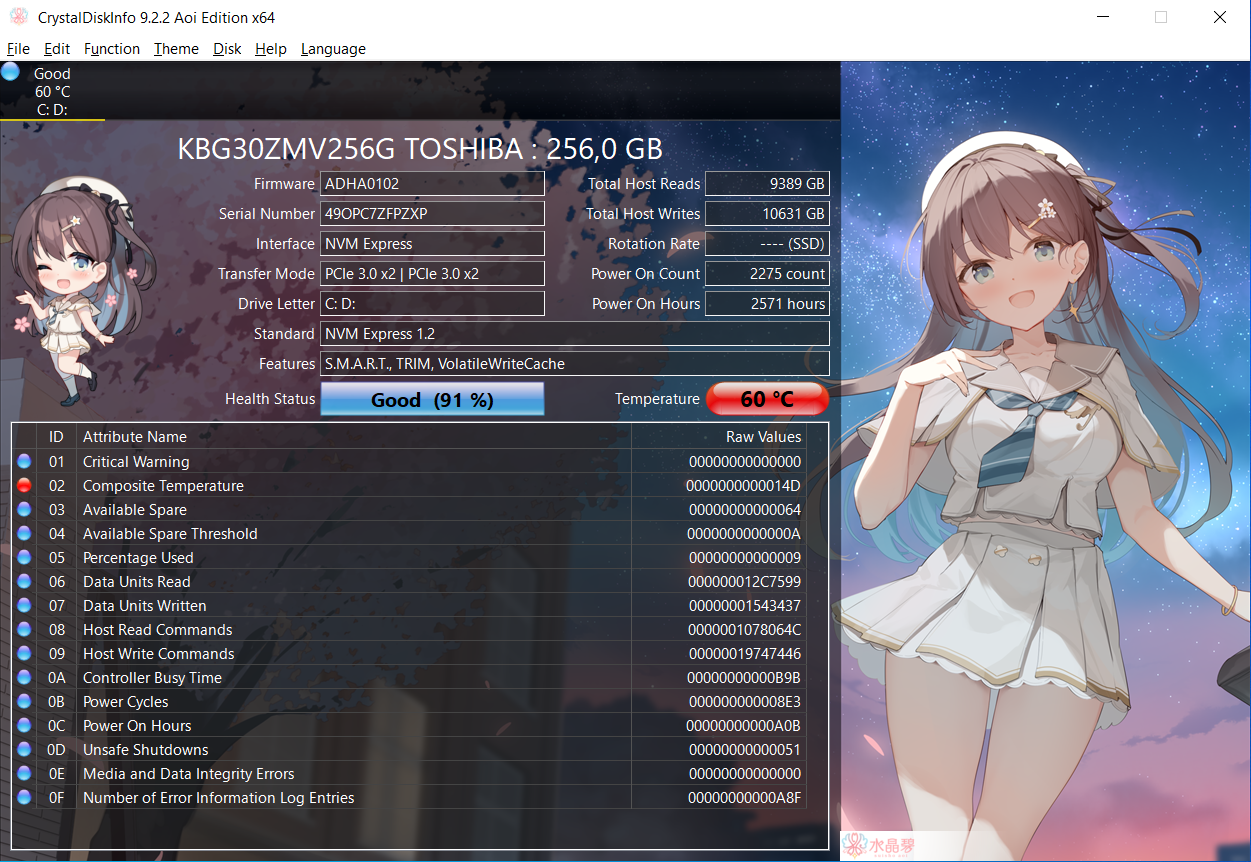Comparing: SanDisk SD9SB8W512G1001 vs TOSHIBA KBG30ZMV256G
In this comparison, we analyze two Disks: SanDisk SD9SB8W512G1001 and TOSHIBA KBG30ZMV256G, using synthetic benchmark tests to evaluate their overall performance. This side-by-side comparison helps users understand which hardware delivers better value, speed, and efficiency based on standardized testing. Whether you're building a new system or upgrading an existing one, this benchmark-driven evaluation offers valuable insights to guide your decision.

SanDisk SD9SB8W512G1001
| Type: | Disks |
|---|---|
| Model: | SanDisk SD9SB8W512G1001 |
| Capacity: | 512GB |
| Interface: | SATA-III 6Gbps |

TOSHIBA KBG30ZMV256G
| Type: | Disks |
|---|---|
| Model: | KBG30ZMV256G |
| Capacity: | 256GB |
| Interface: | PCIe 3.0 x2 |
Specification Comparison Table
This specification comparison presents technical details of several devices or components to help you understand the key differences between each option. Use this table as a reference to determine which device best suits your needs.
| Specification | SanDisk SD9SB8W512G1001 | TOSHIBA KBG30ZMV256G |
|---|---|---|
| Brand | SanDisk | TOSHIBA |
| Format | SSD 2.5 | SSD M.2 NVMe 2280 |
| Capacity | 512GB | 256GB |
| Interface | SATA-III 6Gbps | PCIe 3.0 x2 |
Submission Comparison Table
This submission comparison table displays the number and details of benchmark data submissions from various devices or components. This information helps you understand the performance based on the benchmarks that have been tested, as well as providing an overview of the consistency and popularity of the available benchmark results.
| No. | Benchmark Software | SanDisk SD9SB8W512G1001 | TOSHIBA KBG30ZMV256G |
|---|---|---|---|
| 1 | CrystalDiskMark |
Read: 526.70 MB/s Write: 485.87 MB/s |
Read: 774.69 MB/s Write: 401.20 MB/s |
Submission Comparison Chart
This chart visualizes the benchmark scores comparison between two hardware devices based on submitted data.
Media Gallery
A collection of photos of tested hardware. These images can help you identify the physical form, model, and variant of the hardware in question. These photos are from our own documentation, and if they are not available we may not be able to document them.
About Hardware SanDisk SD9SB8W512G1001
The SanDisk SD9SB8W512G1001 is a 512GB solid state drive (SSD) that uses a 6Gbps SATA interface, offering significant improvements in read/write speeds over conventional hard disks. The SSD is designed with 3D NAND technology, which provides advantages in durability, power efficiency and storage density, making it an ideal solution for laptop and desktop users who prioritize high performance and system responsiveness.
In performance testing, the SanDisk SD9SB8W512G1001 was able to achieve read speeds of up to 550MB/s and write speeds of up to 500MB/s, making it well suited for multitasking, fast system booting, and processing large files such as videos and project data. This performance helps to reduce application loading time and improve overall productivity
It also features low power consumption, making it ideal for use in laptops to extend battery life. In addition, the design with no moving parts makes it more resistant to shock and vibration, and quieter than HDDs.
With full support for TRIM, S.M.A.R.T. and NCQ, the SanDisk SD9SB8W512G1001 is a great choice for users who want fast, reliable and power-efficient storage in an affordable SATA SSD. It can be used as both a primary drive and an upgrade from an older HDD for a much faster and more efficient computing experience.
Thursday, 23 June 2022 07:42:49 | Update: 1 month ago
About Hardware TOSHIBA KBG30ZMV256G
The TOSHIBA KBG30ZMV256G is a 256GB NVMe solid-state drive (SSD) specifically designed to deliver high performance in modern computing devices such as ultrabooks, thin laptops and space-constrained systems. Sporting an M.2 2280 form factor, this SSD offers an ideal combination of high speed and compact design, making it an excellent choice for users who require fast storage without sacrificing physical space within the device.
It is built with a PCIe Gen3 x2 interface and supports the NVMe 1.3 protocol, which is significantly faster than traditional SATA-based SSDs. Thanks to 3D NAND flash technology, the TOSHIBA KBG30ZMV256G is able to deliver consistent performance and better power efficiency, while extending the lifetime and reliability of the device. This technology also contributes to low power consumption, which is especially important for laptops and mobile devices that rely on battery efficiency.
In tests conducted using a ThinkPad T470 with an Intel Core i5-6300U processor, 8GB of RAM, and Windows 10 22H2 operating system, this SSD performed very well for a variety of daily computing needs. Based on the CrystalDiskMark benchmark, read speeds reached 774.69 MB/s and write speeds of 401.20 MB/s. Tests with the ATTO Disk Benchmark showed read speeds of up to 1000 MB/s and 589.86 MB/s write, while in the AS-SSD Benchmark, read speeds jumped to 1363.84 MB/s and 786.62 MB/s write. These results show that the SSD is capable of handling demanding tasks such as fast booting, large application loads and large file transfers very efficiently.
Overall, the TOSHIBA KBG30ZMV256G is an ideal choice for users who want an NVMe storage upgrade with high speed, low power consumption and a compact design. Suitable for professionals who require consistent performance under high mobility, this SSD also offers added value in terms of energy efficiency and long-term durability. As a product from a reputable brand like Toshiba (now Kioxia), its reliability and quality have been proven in the global market.
Device test (testbed):
Device: ThinkPad T470
CPU: i5-6300U
RAM: 8GB RAM
OS: Windows 10 22H2
Thursday, 10 August 2023 10:15:02 | Update: 1 month ago


